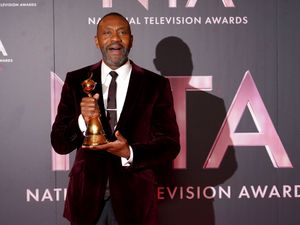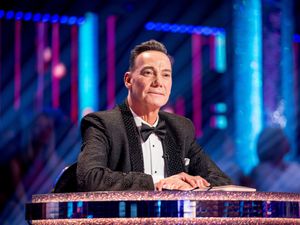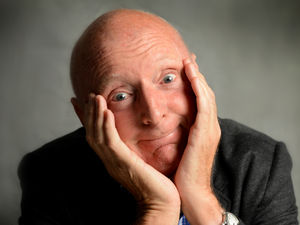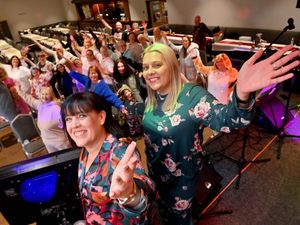Sir Lenny Henry reflects on importance of representation after NTA win
A video montage of his work across the years was played during the ceremony at the OVO Arena Wembley in London.

Sir Lenny Henry has said being given opportunities in the entertainment industry allowed him to help “break down barriers” for other people of colour as he received the coveted special recognition gong at the National Television Awards.
The 64-year-old comedian and actor was presented with the honour for his “trailblazing career in UK television”, organisers said.
A video montage of his work across the years was played during the ceremony on Thursday at the OVO Arena Wembley in London before Sir Lenny collected the award.

Among those congratulating Sir Lenny for his achievements in the video was Hollywood star Whoopi Goldberg who said: “I think Lenny’s just trying to make sure that everyone feels that there’s a place for them at this table. So all I can do is tip my dreads to him.”
Collecting the prize, Sir Lenny shared his signature humour as he thanked the audience for standing up, saying that he knew some people were just trying to leave and joked that he was going to keep his speech short as the award ceremony was so long that David Beckham was still outside queuing.
Reflecting on his career, he said: “I’ve been doing this thing since I was 16. Back then we used to play football in the park and often I wouldn’t get picked right?
“Partly because I was c*** at football but mainly because I didn’t look like anybody else in the team. So I didn’t get to play.
“But here’s the thing about this industry – I was allowed to play.”
He continued: “I’m a black guy from Dudley who got to do Shakespeare. I was a kids TV presenter who got to sing with Kate Bush, and I did get picked for a brilliant team, one that raised over a billion pounds for Comic Relief. Big up to the Comic Relief posse.
“Because I was allowed to play in this industry, and everybody saw me on primetime TV year after year that helped break down barriers and allow other people of colour to do the same.
“I’ve been an impressionist, a genie, a Brixton DJ, a chef, a pretend white bloke, a weird shrunken head thing on a Harry Potter purse, a Doctor Who villain, a Broadchurch suspect and now I’m a goddamn black, Irish hobbit.
“We really can do anything if we are given the chance to do so, whoever and whatever we are. The best television allows us to walk a mile in other people’s shoes to understand their lived experience to feel empathy.”
Sir Lenny revealed he was writing his own ITV drama called Three Little Birds about the post-Windrush generation in the mid 1950s.
He said: “I hope the show will make you laugh and cry and understand how it was for those men and women to swap the sun and the sea for the rain and the cold. They were seeking a better place where not everybody was welcoming.
“We wanted to make a drama that showed what it took to overcome great adversity. When we can relate to each other it brings us together, right?
“This is a time for people like us to be together, to be allies, telling all kinds of stories and leaving no one behind. I want to thank everybody who’s helped me to get to where I am.”
The actor and comedian thanked all those in the entertainment industry who have helped him throughout his career as well as the audiences who have watched him and his family and friends for supporting him.
Born in Dudley, Sir Lenny won the talent competition New Faces in 1975 and started working in television when he was 16 years old.
He went on to feature in numerous TV shows including Broadchurch, The Syndicate, The Long Song and most recently The Lord Of The Rings: The Rings Of Power.
In 2016, the actor received a Bafta Award for outstanding contribution to television and a knighthood from the Queen at Windsor Castle in 2015.
He also co-founded the charity Comic Relief alongside filmmaker Richard Curtis in 1985 and set up the Sir Lenny Henry Centre for Media Diversity at Birmingham City University.





